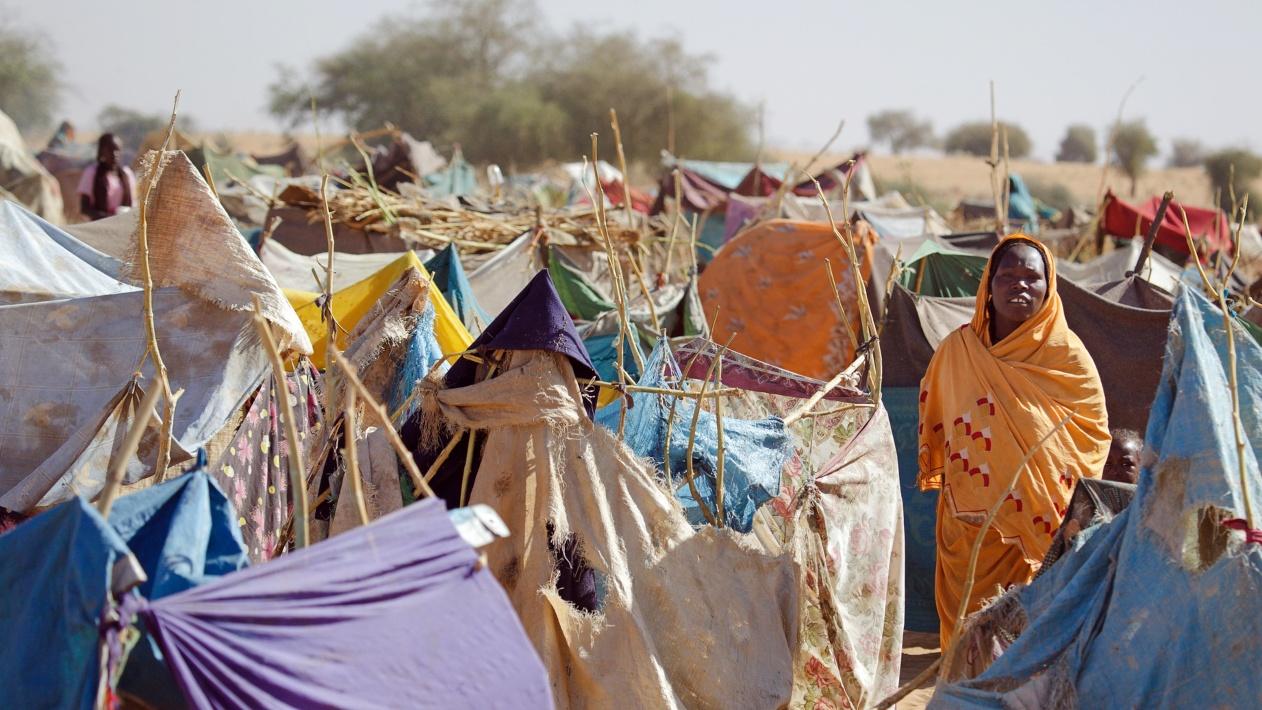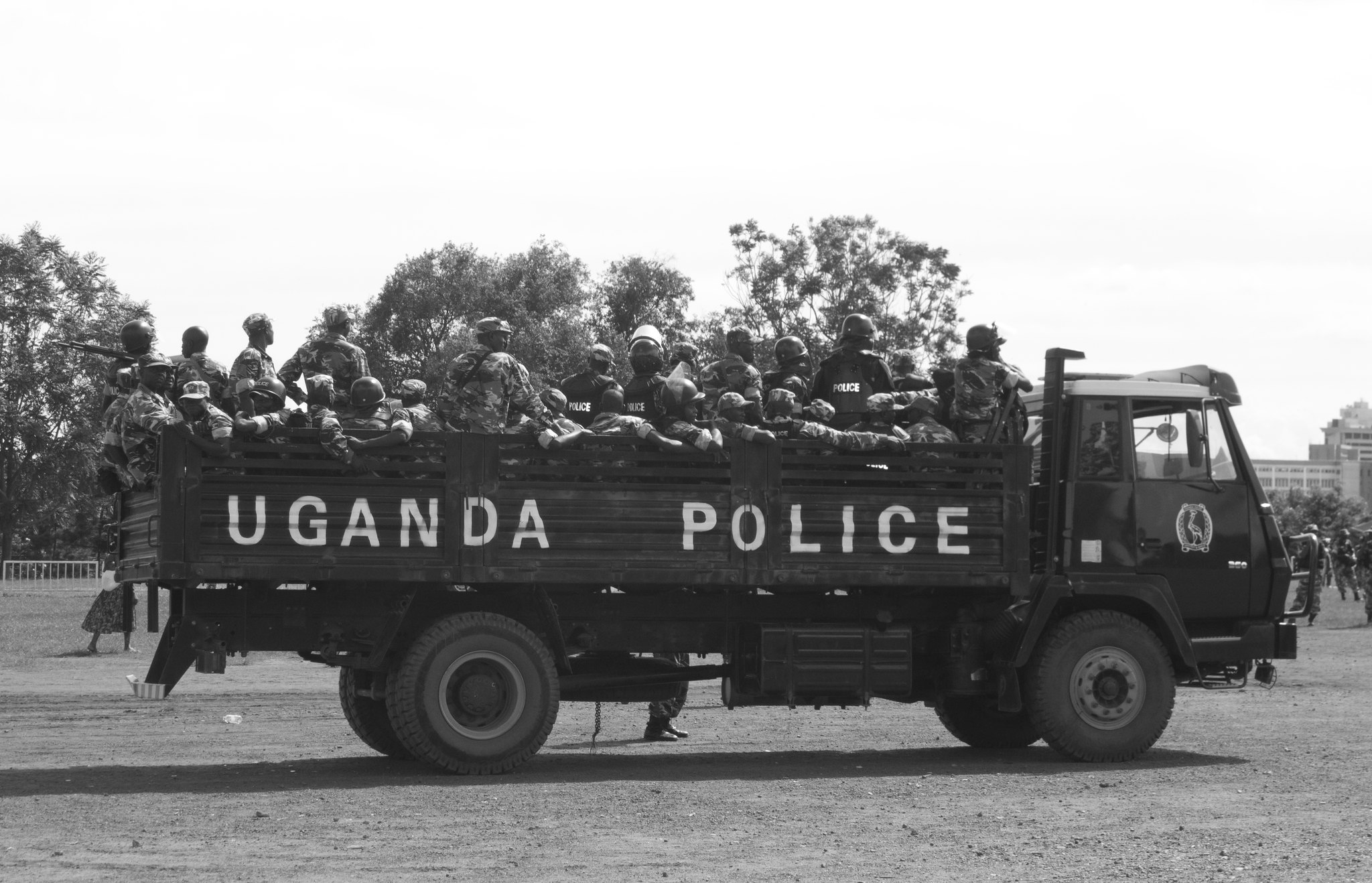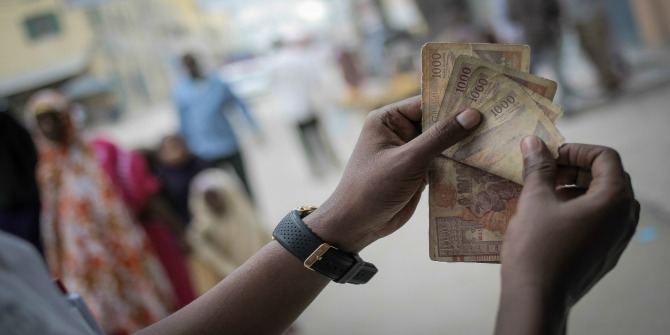The latest peace agreement in the Central African Republic creates space for rebel warlords to participate in the country’s future. But with accusations that the agreement has downplayed justice, argues Gino Vlavonou, a mix of doubt and excitement allows the potential for renewed anger and grievances towards the state.

After ten years in power, in 2013, Séléka rebels ousted the Central African Republic’s (CAR) President François Bozizé, after which Anti-Balaka militia groups rose up in response. The country has since been searching for peace, and seven efforts to resolve the conflict have failed.
The latest peace accord was signed on 6 February 2019 in the country’s capital, Bangui, which received an understandably mixed response of excitement and doubt about its potential to deliver the country’s long-awaited peace. Even some Central African civil society actors feel that the peace agreement has downplayed justice in order to silence guns.
The African Union led the mediation and provided room for rebel inclusion into government. However, governments in CAR have co-opted armed group members in the past, and this has been ineffective in halting cycles of rebellion. Despite the current peace agreement, Anti-Balaka forces are still fighting other rebels, the FPRC and the UPC. While these clashes might be due to local issues, armed group commanders have been unable to control their members.
In order to assess the chances of the CAR’s latest peace accord, we should therefore explore the implications of having an inclusive commission comprised of rebel warlords, and question the symbolic issues around the war.
Prior to the peace accord, Anti-Balaka wanted to be publicly acknowledged as the country’s saviour and recognised for the good they have done the country. Indeed, during my research in 2017, I met Anti-Balaka fighters who claimed to represent the ‘true’ Central Africans and desired recognition for their actions, courage and heroism, such as by having monuments built in their name. The emergence of Anti-Balaka crystalised the importance of identity in the process as they tried to redefine what the CAR population should look like. Thus, in any attempt to form a government with armed groups, long-standing issues around identity and inclusion remain part of the discussions around peace and post-conflict governance. What would it mean for Muslims (who were often the targets of Anti-Balaka attacks) to face daily a monument that represents Anti-Balaka heroism?
One of the Anti-Balaka leaders, Maxime Mokom, explicitly called in August 2017 for foreign mercenaries to be chased from the country, which was interpreted by some as a call for the departure of all Muslims. That Mokom is now heading the high profile Disarmament Demobilization Reintegration and Repatriation (DDRR) ministry means one should expect further tensions. DDRR is part of the toolkit that can supposedly move countries that witnessed conflicts towards peace. In CAR the programme’s money has allowed politicians to promise rewards to rebels (without their delivery) and offer money, salary or compensation to other individuals. Mokom’s impartiality as the head of the DDRR is in doubt.
Past DDRR initiatives have failed, and they have fueled armed actors’ sense of rightful entitlement to money, status and dignity. In light of this entitlement, denying dignity to some rebels will fuel grievances. DDRR is increasingly recognised as a political exercise and not a mere technical tool. So what could be the implication of placing an Anti-Balaka at the head of a DDRR ministry? Can Mokom genuinely allow Séléka fighters to benefit from the programme?
The peace agreement additionally proposed that armed groups and official army members form security patrols to protect civilians, and several rebel leaders have already been appointed to these mixed security units. The authority of these groups is highly contested. Rebels here are understood as public authorities because they can commend consent and now play an official role (as ministers) in conflict management. Human Rights Watch (HRW) reported that victims of UPC crimes are frustrated by UPC leader Ali Darassa’s appointment as a military adviser for the region where he is accused of committing war crimes. MPC leader Mahamat Al Khatim and 3R leader Sidiki Abass have also been appointed as military advisers to the Prime Minister.
The mixed units would supposedly be under the command of the national army. But a national army commanding former rebels still loyal to their chief will lead to problems of coordination, especially given these rebel leaders have the ranks of ministers. The relationship between the DDRR ministry as well as the defence ministry will need to be clarified.
Moreover, Article 11 of the accord might have deeper implications for the peace process, in its promotion of some actions at the expense of others, overseen by a Truth, Justice, Reparation and Reconciliation Commission (CVJRR). Article 11 advances that ‘pending the establishment of the CVJRR, an inclusive commission, composed of the Parties, is immediately created by decree to review all aspects related to the tragic events of the conflict in the Central African Republic, to qualify and propose any action likely to be taken in matters of justice’. The peace accord therefore prefers a truth and justice commission over, for instance, amnesty or the implementation of material and distributive justice for the victims. Some scholars have argued that truth and justice commissions themselves can be ineffective tools for peace, as well as jeopardise transitions or even destabilise post-conflict countries. Further, the lack of a discussion around amnesties, and whether they are necessary or obstacles to peace, leaves it ambiguous whether they will be pursued.
We shall see whether the positions provided in the accord are answers or escalating factors with regards to further armed conflict.
There is also doubt that armed groups can be part of a commission that will qualify and propose any action likely to be taken in matters of justice. Armed group members are now in positions of power to determine whether they can be legally pursued. This creates the impression that renouncing violence supersedes victims’ considerations.
Further, other mechanisms for justice are available with no indication as to how they would interact with one another. The Special Criminal Court has been established with no apparent relation to the peace accord, with only the accord advocating traditional reconciliation mechanisms. Ultimately, it is clear armed actors will not be supportive of a justice mechanism that will target them. Central Africa HRW Director Lewis Mudge summarises the rebels’ position:
‘This [the war] isn’t our fault, so we should not be held accountable for what happened. If civilians suffered, then we should talk about reconciliation, not justice. Justice will only lead to more problems.’
In a county where political elites are not used to being held accountable, why would the rebels be? For the strategy to be pursued the ‘inclusive commission’ and international supporters of the peace deal should be ready, therefore, to accept and fund other models of reparation for suffering victims. They might then be able to address people’s perceptions of the end of the war. Should these issues be left unaddressed, growing grievance and anger towards the state will once again sow CAR’s seeds of rebellion.
Gino Vlavonou (@GinoVlavonou) is a PhD Student at the School of Political Studies at the University of Ottawa and Research Associate with UVC program at the Social Science Research Council in New York.
The views expressed in this post are those of the author and in no way reflect those of the Africa at LSE blog, the Firoz Lalji Centre for Africa or the London School of Economics and Political Science.





